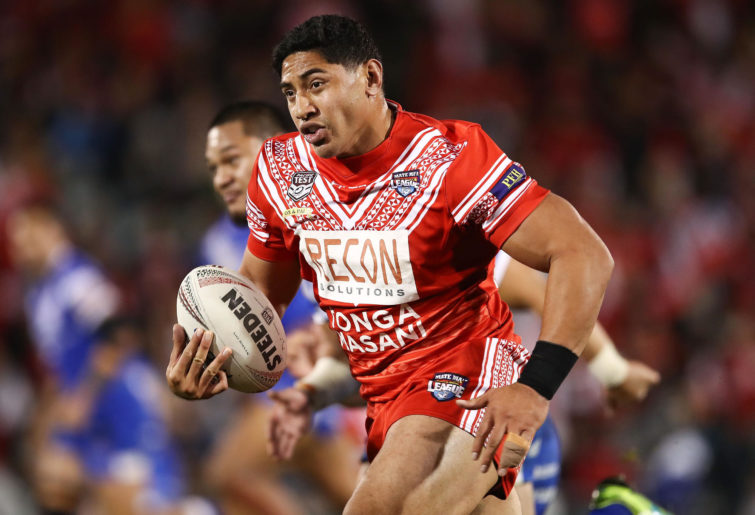Trust rugby league to complement the uplifting and newsworthy with sheer incompetence.
The 2021 World Cup announced generous ticket prices and freebies to ‘key workers’ – I snitched on my neighbour for taking two walks a day, where’s my reward? At the same time, many of the potential stars were put into isolation having contracted Covid-19.
And while England coach Shaun Wane was unveiling St Helens starlet Morgan Knowles into his squad, the RFL ruled out any international fixtures until this time next year. It’s the sort of joined-up thinking that makes Boris Johnson look competent.
Both of these misnomers attracted ire from the game’s chattering classes and keyboard warriors, but not necessarily for the most obvious reasons. The RLWC is still not accepted by many as a legitimate tournament, nor Knowles a proper international, because of the game’s eligibility rules and, more to the point, its attitude.
International rugby league is not as big or popular as the domestic game, nor do I think it will ever be. And that’s OK, it isn’t a sign of weakness or terminal decline.
At the same time, there is room for it to grow and expand, complementing the week-to-week action. But many insist on disparaging any efforts, predominantly pointing to two eligibility rules.
Firstly, the qualification criteria, done by residency or by familial ties. To the sniggering comedians out there, this does not mean you could play for Ireland if your granny ever had a Guinness, or represent Scotland if you’ve ever dabbled with heroin.
There are proper checks to ensure genuine connection to one’s heritage. More to the point, with minimal to negative financial incentive at Tier 2 level, players aren’t going to lie about grandad mislaid his condom if they didn’t have real, emotional ties to their heritage.
Then there’s the recent changes that allow ‘country-swapping’, whereby Tier 1 players can transfer to Tier 2 nations (circa Jason Taumalolo) within a year. This is what makes rugby league quite unique in international sport, in that it acknowledges the multiple identities inherent within our complex societies.

Jason Taumalolo for Tonga. (Photo by Brendon Thorne/Getty Images)
On this point alone, it is not devaluing international footy with transfers and mercenaryism. It is in fact the opposite, players acknowledging the multi-faceted layers of their identity, and in many cases foregoing the cash.
Whilst you can’t play for England and Jamaica at the same time, you can go throughout life being a proud Englishman while acknowledging your West Indian roots.
Even this middle-classed half-Asian can appreciate some fine Caribbean culture (no, I’m not referring to Jamaican ‘agriculture’). Those suggesting players stick to one country for life may as well make the argument that citizens should be restricted to one identity, one passport, one language.
Many argue that the odd outsider to complement a predominantly domestic squad is fine, but to have an entire squad comprised near-entirely in this manner is demeaning to the international game and those working on the ground domestically.
At the risk of espousing exclusionary rhetoric, I’m afraid it is near impossible for us with exclusive ties to Tier 1 nations to fully understand the mindset of these developing nations and their people.
There are more Tongans living outside of the Kingdom than in it. When rugby league first came to Tonga, there was a clash between the diaspora representatives and the domestic players.
Eventually it came to pass that the foreign-born and locally raised were all treated as one, without distinction, by the domestic Tongans themselves.
If these Antipodean-born players feel Tongan, the domestic establishment accept them as such, and these ‘outsiders’ are laying down the roots for homegrown talent to emerge, what right do we non-Polynesians have to criticise their modus vivendi?
The Morgan Knowles case is different, as he is making the ‘traditional’ switch from weak Tier 2 Wales to the higher paying, more successful England. It is also complicated by the fact that, English or Welsh, he’s British.
But again, he was happy to represent the Land of his Fathers, and the Welsh were happy to have him while they could, passing his experience on to younger players and helping the national side grow in stature and confidence. His Englishness has not precluded his Welshness. He can have his leek and eat it.
And more to the point for those claiming these Polynesian kingdoms are just an ‘Australia B team’. Rather than disparage players for representing their heritage, perhaps look at why they don’t feel represented by Tier 1 nations.
I don’t want to go too far into a chat about multiculturalism and racism on the internet – that never goes well – but if after so many generations, diaspora communities still feel marginalised to the point of excluded, even willing to forego financial reward, then all is clearly not rosy.

Konrad Hurrell of Tonga. (Photo by Fiona Goodall/Getty Images)
Using possibly the most English analogy ever, look after your own garden before criticising your neighbour’s flowers. I say this just as much about England, even more so in fact, as for Australia and Aotearoa-New Zealand.
I have no doubt that the World Cup next year will be an excitable spectacle of rugby league and culture. If the world is normal by then, and for the sake of what’s left of my sanity, please God let it be, let’s leave some aspects of our old thinking behind.
No more attacks on the Robbie Farahs of the world, disparaging Lebanon as Western Sydney Reserves. It’s insulting (both to heritage, and having to identify with West Sydney – blech) and does us no good, as a game and a society.
Thus endeth the rant






























































































